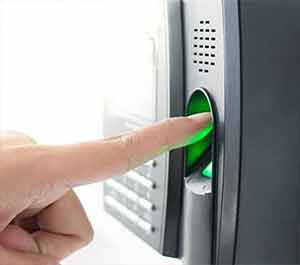Pro Durham Locksmith
Mobile Locksmith Service

Call Today: (919) 278-7518

 Residential security technology is increasingly becoming more and more sophisticated over time. Keyless entry systems are at the top of the list of smart security solutions for the average homeowner – and for a very good reason.
Residential security technology is increasingly becoming more and more sophisticated over time. Keyless entry systems are at the top of the list of smart security solutions for the average homeowner – and for a very good reason.
There are a variety of systems to choose from, including pin pads, electromagnetic fobs, swipe cards, and even fingerprint scanners. These all come with their pros and cons, which you should keep in mind if you are considering upgrading your security to some of the latest keyless technologies.
To help make your decision easier, here are a few things to keep in mind when selecting the right locking mechanism for your residential property.
When we say keyless, we mean it. No more fumbling around trying to find the right key for you lock, no more fears losing keys along the way and – most importantly – no longer will there be any uncertainty about who has a copy of your spare key. The latter is one of the main reasons why a lock replacement is recommended as soon as you move into a new house, so investing in a good keyless system will have long-term benefits too.
Only people with the right key cards, codes, or any other access mechanism will be able to enter and exit the property at any given time. Keyless systems can be customized to restrict access to some areas too – for instance, a swipe card for a commercial property may only work on certain doors during business hours.
Have you ever hidden a spare key under your carpet? Then you may have left your property vulnerable to theft. Burglars know to look for spare keys, and will likely do so before trying to force their way inside. As far as your average thief is concerned, the easier a property is to access, the better – which is also the reason why they will think twice before trying to tamper with a keyless entry system.
A lot of keyless systems come with CCTV cameras, and other real-time monitoring capabilities. So if anything goes amiss, you just need to check back the record of who has been in your property throughout the day.
Now, the drawbacks
Installing, setting up and using a keyless system can be fairly intuitive. On the other hand, because there is a wide range of systems in the market, prices fluctuate too – you can pay as little as $125 and as high as $1000 per door. If you are in the market for a keyless system, make sure to shop around to get the best bang for your buck.
Just as traditional keys have their limitations, there are ways to circumvent the heightened security that comes from a good keyless system too. While these are generally safe, and can even alert the police after too many failed attempts at breaking a code, a tech-savvy criminal could still hack their way into it.
Nobody likes lockout situations, and these tend to be even more frustrating when a backfiring keyless system is involved. If you’re not good at remembering numeric combinations and codes, a security mechanism that requires committing things to memory might not be a wise decision. In which case, swipe cards or fingerprint scanners might be the best option for you.
While most keyless systems come with backup batteries, power failures could be troublesome. These can go both ways – you’ll either be unable to unlock your door, or you might find that you can’t close it. Before committing yourself to a keyless entry system, try to find out what kind of assistance is available if things do go awry. Planning in advance will help you understand the worst case scenarios, and budget for them too.
Talk to a residential locksmith in your area to get more information about your options. Not only will they have access to some of the best technologies available, they will have plenty of experience installing these too – so you should be able to trust that they will be able to explain the pros and cons of each system in more detail.
If you’ve never had to hire a locksmith before, remember to find someone who is locally-based. Be wary of your choices and make sure to do a bit of background checking: a locksmith from outside your vicinity will charge extra for travel, and some scammers will try to get money out of you by listing an address that doesn’t exist. Best rule of thumb to follow is to ask around for recommendations, note down a few business names, and inquire with your locksmith professional about their residential solutions. Remember: some locksmiths may specialize in different areas, so clarify whether your chosen business actually offers residential services, and get a full breakdown of costs from the person you are talking to on the phone. While you’re at it, ask about licensing and insurance information and don’t hire any business who gets defensive about providing a full business name upon request (you’ll only really need to verify this if the person on the other side answers the phone using a generic sentence like “locksmith service”).
For More Info.
We can assure you that we listen to our customers who call for Durham locksmith services and deliver options they are happy with.